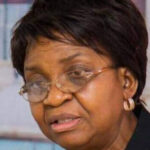
• Experts say countries that paid in advance will receive first
• Nigeria needs all approved COVID-19 vaccine brands, says PMG-MAN
• ’Novavax’s experimental shot highly effective against COVID-19 variant’
Public health experts have provided reasons why African countries may not get COVID-19 vaccines and in reasonable quantities before March 2021.
A public health physician and one of the team leaders of Lagos State COVID-19 efforts, Prof. Akin Osibogun, told The Guardian yesterday: “Some countries made advance payment for vaccines even while the researches were ongoing and African countries obviously could not compete in that field. However, the World Health Organisation (WHO), Global Vaccine Initiative (GAVI) and some international bodies under the COVAX arrangement are hoping to get vaccines across to developing countries.
He said countries that made advance payments would be served first. Osibogun, who was the immediate past Chief Medical Director (CMD) of Lagos University Teaching Hospital (LUTH), Idi-Araba, said there are over 170 candidate vaccines undergoing different phases of pre-clinical and about 64 undergoing different phases of clinical trial. He said about eight-10 vaccines are being approved for emergency use by national and regional authorities. Prominent among these, Osibogun said, are Pfizer, Moderna, AstraZeneca, Sinovac and J&J while USA, European Union members; India, China and Russia are some of the prominent producers.
The public health physician said the Johnson & Johnson vaccine has an application submitted on its behalf to the United States Food and Drug Administration (FDA) and it is expected that Emergency Use Authorisation will be granted.
CHAIRMAN, Pharmaceutical Manufacturers Group of the Manufacturers Association of Nigeria (PMG-MAN), Dr. Fidelis Ayebae, told The Guardian: “Johnson & Johnson vaccine potency level is good enough. Its additional advantages are that you require only one dose, that makes it cheaper, and the logistics requirements is not as tedious. If issued an emergency use authorisation by National Agency for Food and Drug Administration and Control (NAFDAC), it is as preferred as the rest. The challenge is that a country like Nigeria, because of our population, needs all approved brands so that no one manufacturer can singly supply our national requirement given the urgency.”
“Note that NAFDAC is currently doing a great job reviewing the scientific presentation of those that have approached them for emergency use authorisation. This is a painstaking and careful process because of the biological nature of vaccines and the need to engender confidence in their usage. The country should trust and be grateful to the men and women in NAFDAC for their commitment to protecting the health of the nation,” he said.
And on how many African countries have taken delivery of COVID-19 vaccines, Ayebae said: “Not sure but only a handful. They are certainly fewer than eight countries. I am honestly not sure about the scientific scrutiny that some of those countries put the vaccines to, but they made the political decision to use them since the West are already doing so. Our government and regulatory institution like NAFADAC and primary health department are doing a great job for national safety and pride.”
Executive Director, National Primary Health Care Development Agency (NPHCDA), Dr. Faisal Shuaib, assured that in the past, vaccines had saved hundreds of millions of lives. “That is why we work around the clock to ensure a swift, efficient rollout of #COVID19 vaccination for Nigerians and to overcome the supply challenges the world is experiencing,” he said.
Medical Director, Medical Art Centre (MART) Ikeja, Lagos, Prof. Oladapo Ashiru, said the Oxford University AstraZeneca vaccine is ideal for African countries. He explained that the vaccine utilises the viral vector approach that relies on using a genetically modified virus. This genetically modified virus fights against the harmful infectious viruses in the body and eliminates them with an effectiveness of 62 to 90 per cent. The patients will require two individual doses of this COVID-19 vaccine.
Ashiru, however, said the Moderna COVID-19 vaccine would be difficult for African countries to administer appropriately because the vaccine contains parts of the virus’s genetic code. The vaccine was created after understanding the genetic code of the underlying coronavirus and modifying the useful elements. The patients will have to get two individual doses for this vaccine to work. It offers effectiveness of 95 per cent, according to the trials. It can be kept safe at a temperature of -20 degree Celsius for six months.
MEANWHILE, the biotech firm, Novavax, has declared that its experimental vaccine is effective against rapidly spreading variants of the coronavirus. Although the vaccine was more than 85 per cent effective against a COVID-19 variant identified in the United Kingdom, it was less than 50 per cent effective against a lineage called 501Y.V2, which was detected in South Africa and is spreading around the world.
The findings, announced yesterday by the team that led the South African trial, come from a pair of efficacy trials of Novavax’s protein-based vaccine. The South Africa trial has enrolled more than 4,400 participants, the UK trial around 15,000.
The South Africa study is the first in people to show, reassuringly, that the 501Y.V2 variant can be quelled using vaccines. Recent data from laboratory experiments had suggested that this variant was partly resistant to antibodies generated by people who had recovered from COVID-19, as well as to those triggered by other vaccines.
“We’re still seeing vaccine efficacy, and that’s incredibly important,” said Glenda Gray, head of the South African Medical Research Council, at a press briefing announcing the findings. “This will have both an individual and a public health benefit.”













